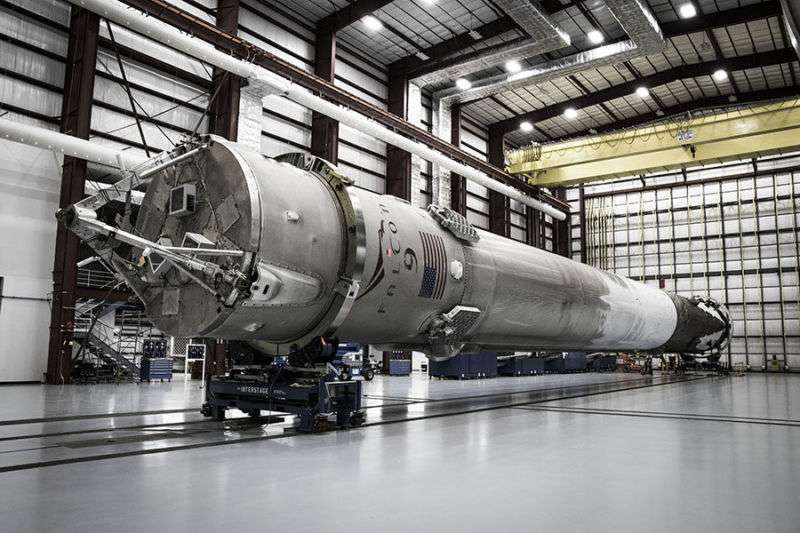
SpaceX broadband testing to ramp up with launch of dozens of satellites

SpaceX will launch dozens of demonstration broadband satellites next week as it ramps up testing for its planned Starlink service. The company says it will begin launching satellites for the actual service later this year.
This week, SpaceX President and COO Gwynne Shotwell confirmed that dozens of Starlink satellites will be aboard the Falcon 9 launch scheduled for May 15, according to several news reports.
“This next batch of satellites will really be a demonstration set for us to see the deployment scheme and start putting our network together,” Shotwell said on Tuesday at the Satellite 2019 conference in Washington, DC, according to SpaceNews. “We start launching satellites for actual service later this year.”
“Shotwell characterized this first wave as a demonstration set, with no satellite-to-satellite communication links,” GeekWire wrote. “Depending on how the demonstrations proceed, from two to six Starlink launches could follow by the end of this year, she said.” (As we’ve previously written, SpaceX says its satellites will essentially operate as a mesh network, and they communicate with user terminals at customer homes.)
Commercial service in 2020—or later
SpaceX hasn’t revealed a specific commercial availability date. The latest details appear to put SpaceX on track to launch commercial service no earlier than 2020, consistent with the company’s past statements. In October 2017, SpaceX told a Congressional committee that it would launch at least 800 satellites before offering commercial service and said the commercial service would likely become available in 2020 or 2021, as SpaceNews reported at the time.
SpaceX launched its first two test Starlink satellites in February 2018, but it has changed the design since then. The changes were made in part so that satellites will burn up completely during atmospheric re-entry in order to prevent physical harm from falling objects.
SpaceX has Federal Communications Commission approval to launch nearly 12,000 broadband satellites over nine years. On April 26, SpaceX received FCC approval to halve the orbital altitude of more than 1,500 of those planned broadband satellites in order to lower the risk of space debris and improve latency. After that latest approval, Shotwell said that “Starlink production is well underway, and the first group of satellites have already arrived at the launch site for processing.”
SpaceX has said that Starlink will offer gigabit-per-second speeds and latency of around 25ms, which would make it a lot more appealing than current satellite broadband services.
Similar Posts:
- Want to Use H7 LED Car Headlight Bulbs? Here are the Things to Know about LED Technology!
- How to Enter the Auto Cosmetics Industry
- Increase the Transport Capacity of Your Vehicle
- Analysis of the Main Influencing Factors of the Trend of Gi Conduit in 2020
- Wise Tips for Ladies When Buying Gifts for Men




